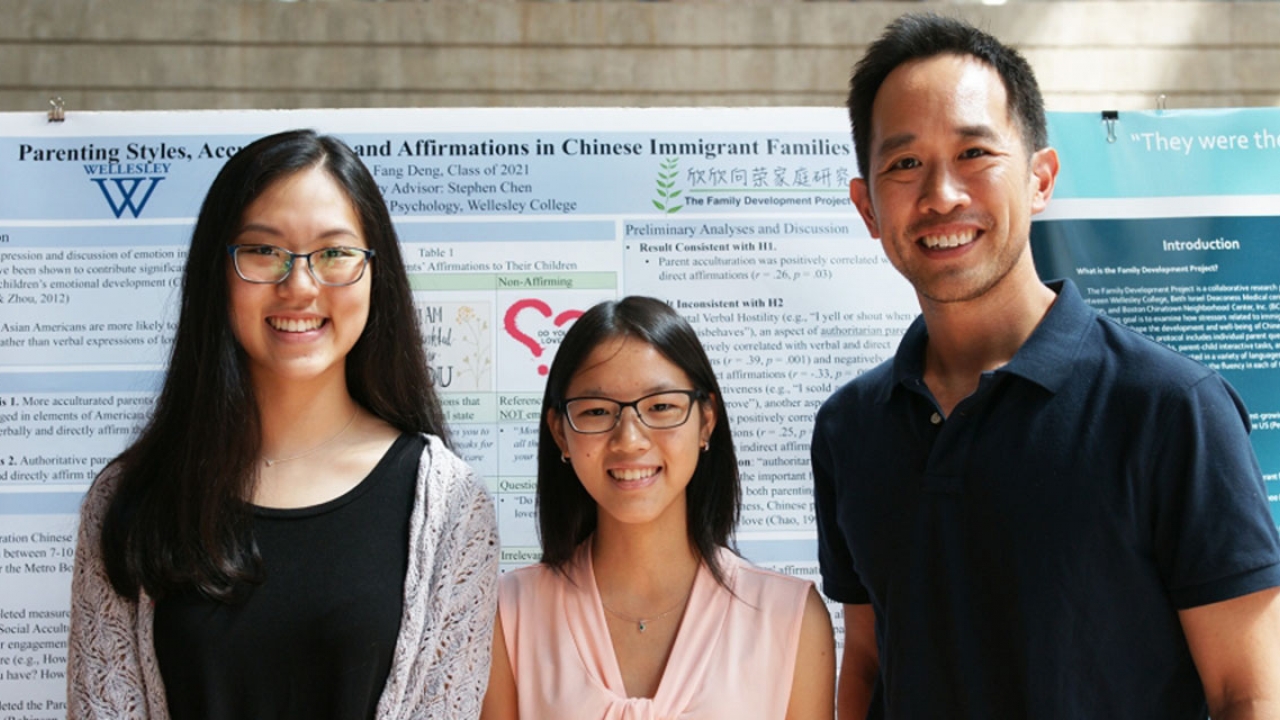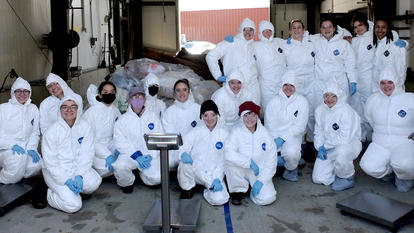Wellesley Psychology Professor Finds that Culture and Status Relate To How Parents Express Emotions to Children

Stephen Chen, assistant professor of psychology at Wellesley, has identified how culture may play a role in parents’ smiles, frowns, or in their encouraging words.
“In the family context, emotional expression really is one of the main means of communication between parents and their kids, from infancy onward,” he said. “Parents’ patterns of emotional expression play a pivotal role in children’s social and emotional development and also in parent-child relations.”
The son of immigrants from Taiwan, Chen’s recent research focuses on the cultural factors that influence how parents express emotions to their children. In his work with Chinese-American immigrants, one of the largest and most economically diverse immigrant groups in the United States, Chen has found that parents’ emotional expressiveness can signal the ways they navigate the cultural transitions associated with living in a new country.
With these parents who have “a foot in both American and Chinese cultures,” he said, he wanted to explore what he called a common stereotype: “In comparison to other American families, Asian American parents are often viewed as being less emotionally expressive, especially when it comes to expressing positive emotions, such as praise or affection, with their kids. My research over the past few years has focused on understanding the ‘why.’”
Chen, along with collaborators, has conducted three studies on the topic.
In the first study, recently published in the Journal of Cross-Cultural Psychology, Chen and Qing Zhou, associate professor of psychology at the University of California, Berkeley, interviewed over 200 elementary-aged Chinese-American children born to immigrant parents in the San Francisco Bay Area. They found that expressions of emotions varied according to their income and culture.
For example, parents who valued collectivism—that is, controlling their feelings to maintain group harmony—reported expressing fewer negative emotions through yelling or harsh criticism.
However, the higher-income Chinese-American parents in the sample reported “expressing more emotions across the board—both negative and positive,” said Chen.
In the second study, forthcoming in Developmental Psychology, Chen and Zhou found that positive emotions—such as laughing, smiling, and displays of gratitude—were more frequently expressed by parents in families that were less engaged in Chinese culture. This led Chen to conclude that, “parents’ patterns of emotional expression may depend not only on how ‘Americanized’ they are, but also on how engaged their children are in American or Chinese culture.”
In the third study, conducted with close to 200 Chinese immigrant families from Boston and communities in the Metro West suburbs, Chen and Xue Fang Deng ’21 and Jamie Zhang ’20 observed how parents expressed affection in verbal interactions with their elementary-aged children.
Although more than 40 percent of the parents offered direct expressions of affection—e.g., “mom loves you,” other parents expressed affection indirectly. “Rather than say, ‘I love you’ directly, these parents would point to certain behaviors—helping their child with homework, cooking for them—that reflected their love,” said Chen. Deng presented these findings this month at the Biennial Meeting of the Society for Research in Child Development.
When asked to asses the significance of her research Deng said, “As parents’ expression of emotion in the family context plays a crucial role in children’s socioemotional development, it's meaningful to examine variations in expression of affection and their impact on well-being. On a broader level, it's important to understand the experiences of ethnic minority populations and their significance on development.”
Photo: Chen with Xue Fang Deng '21 (center) and Georgian Fan ‘21 (left) presenting, “Parenting Styles, Access and Affirmations in Chinese Immigrant Families” at Knapp Social Science Center’s Social Sciences Summer Research Program in 2018.



